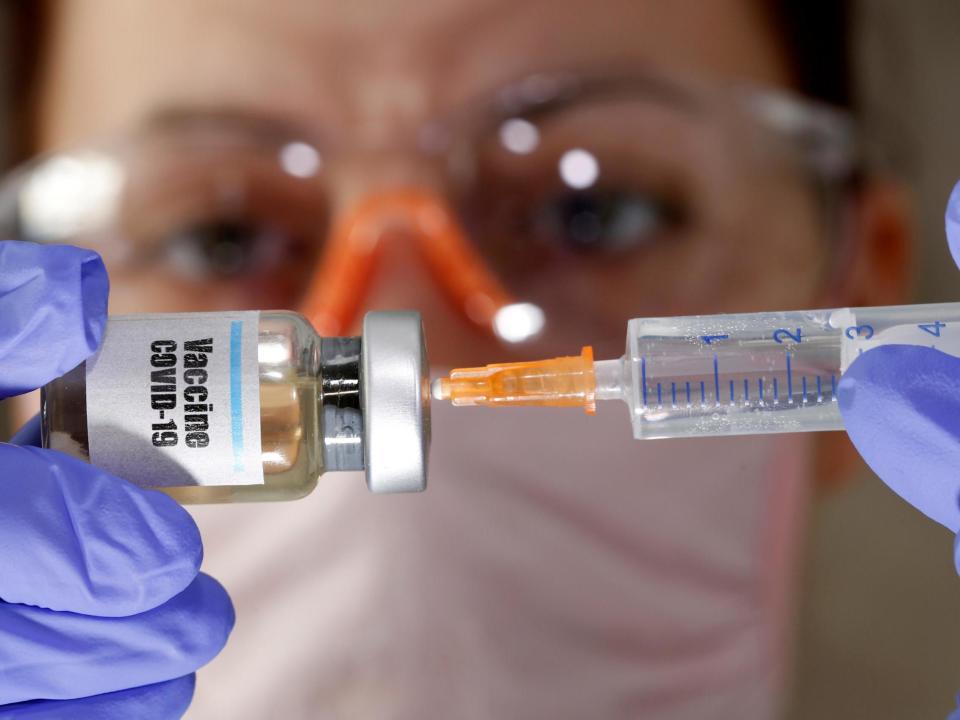The coronavirus misinformation battle is only just starting – there's a new wave of anti-vaxxer panic on the horizon

While the UK is moving past the initial peak of the coronavirus pandemic, for fact-checkers, the fight against misinformation may be just starting.
Over the course of the crisis, we have encountered false claims around miracle “cures”, the origins of the virus and, notably, pernicious conspiracy theories linking it to 5G technology. But now, the harm posed by unfounded anti-vaccine conspiracy theories has been brought to the fore. With vaccination, resistance from even a small minority can have tragic consequences for everyone.
Unfortunately, we have come across anti-vaccine arguments before. They have taken hold in pockets of society in almost every corner of the world. The World Health Organisation (WHO) now lists vaccine hesitancy as one of the top 10 threats to global public health.
As we approach this new battle, it is vital that we learn the lessons of the past crises. In recent decades, parts of Nigeria have been left exposed to outbreaks of Polio when, in 2003, officials in three states imposed an 11-month boycott on the immunisation effort, invoking false claims that vaccines were contaminated with anti-fertility agents, HIV and cancerous agents. The boycott was temporary – but the damage was long-lasting. According to the WHO, it was only in 2016 that cases of wild polio stopped being detected.
The Ebola and Zika outbreaks, in 2014 and 2015, respectively, were exacerbated by local claims that the viruses were hoaxes. And, of course, the panic over the MMR vaccine in the UK, linked to Andrew Wakefield’s now firmly discredited claims of a link to autism in 1998, has had long-lasting effects on immunisation rates. According to the Nuffield Trust, between 1994 and 1995, around 91 per cent of children were vaccinated – but this had fallen to just 80 per cent by 2003.
This is not a new problem. For some, vaccine scepticism is a function of conspiratorial ideation: a tendency to see the world through filters of suspicion and mistrust. That means evidence can be easily discounted or reinterpreted in imaginative, alternative ways.
This matters a great deal. First, because this is not something we can easily correct. But most importantly, it matters because these theories can spread from small groups of convinced believers to the rest of the general public. Psychology research has shown time and again that exposure to information that is repeated contributes to its belief, and correcting these ideas is much harder once they have taken hold of the public imagination. We’ve learned from our review of research in this area that prevention is vitally important when it comes to tackling bad information about vaccines.
You may think all it takes is presenting people with the facts. When it comes to real diseases and long-running myths however, correcting belief and altering behaviour is profoundly more complex. There is some evidence that attempts to dissuade hardcore sceptics can even backfire, sometimes only further entrenching their position.
But there are reasons to be encouraged, too. There is a wide basis of evidence that suggests certain tactics – including repeating simple messages early and often – can cut through in times of crisis. If committed anti-vaccination activists are notoriously difficult to persuade, thankfully they are not our primary target. As the WHO points out, there is an important distinction between this group and individuals who are simply hesitant, or unsure of how vaccines work. Much like the national effort to slow the spread of the coronavirus itself, we all have a part to play in containing the proliferation of dangerous falsehoods. Preventing vaccine conspiracies from reaching wider audiences by slowing the spread of misleading claims on social media is a better use of time than trying to convince deniers.
We know a significant proportion of people who share harmful misinformation don’t do so out of malice. Often, they are motivated by the urge to help their friends and family by sharing information they think will help protect them. In this respect, a coordinated effort to urge members of the public to take extra caution before sharing information online could prove hugely effective. Last year, we received a call from a worried yet grateful parent. Having previously been unsure, she decided to have her children vaccinated after reading one of our fact checks on the subject.
This is just one example of how fact-checking can stop bad information from hurting people. By standing up for good information together, fact-checkers and the public can help us avoid the deadly mistakes of previous crises.
Dr Dora-Olivia Vicol is a researcher for Full Fact
Read more
Only half of Americans say they would definitely get Covid-19 vaccine
Pharmacies braced for flu vaccines amid fears of second Covid-19 wave

 Yahoo News
Yahoo News 